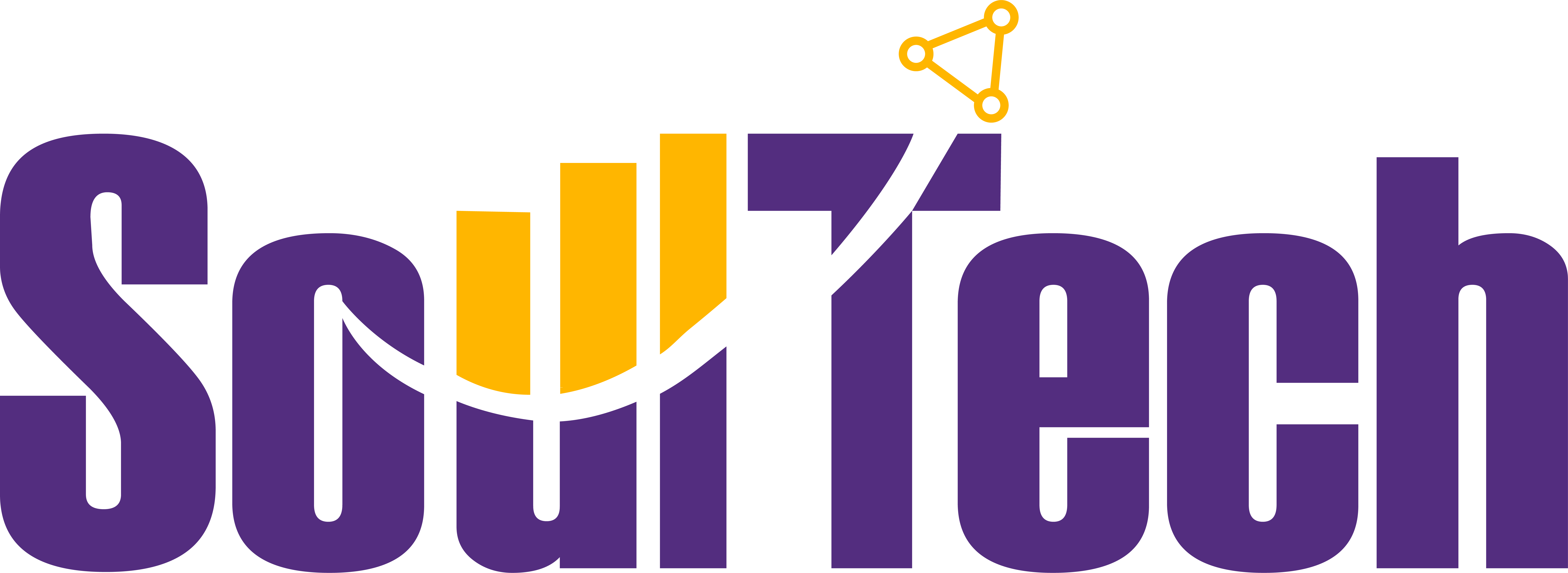About Soultech ERP
- Helps businesses plan, forecast, and operate faster, so that they can expand and gain profitability.
- Automating an organization’s processes gets rid of redundant and inefficient workflows, which improves productivity and creates space for growth and innovation.
- With management systems (modules) for all departments in one place, teams can easily access real-time data across the organization. Reporting is streamlined and accessible by all.
- Not only is data secure on the database system, and much more accurate than if it was input manually, but it’s also available in real-time. Data, such as procurement or sales, can be tracked and monitored. Reports can be generated immediately, which is useful for planning, forecasting, budgeting, and communicating insights to shareholders and teams.
- Helps integrate all teams, which enables collaboration and sharing of knowledge across the organization. Companies can grant organization-wide access, and this visibility contributes to workplace cohesion and harmony.


Sales
- Customers
Full customer repository aligned with tax requirements – Customer contracts – Customer statement and analysis
- Sales Invoices
Tax Invoices – Simplified Tax invoices – Auto inventory issue – AR & POS invoices
- Customer Collection
Using different payment methods – Multi invoice collection – partial collection
Stocks
- A wide range of tools to help manage warehouses effectively.
- Flexibility in defining stores and managing the movement of items between stores.
- The possibility of defining unlimited numbers of stores.
- The ability to add unlimited numbers of products and items.
- Organizing the movement of items between stores, warehouses, branches, and sales representatives.
- Appointing officials and managing authorities at the warehouse level in an easy and effective way.
- Monitor item and product data and their balances at all times.
- Inventory inventory, inventory records and reconciliation.
- Inventory adjustments and depreciation transactions.


Purchases
- Suppliers
Supplier definition, Supplier statement, Supplier statistics and Performance
- Purchase Requests
Multi request types – Inventory & Non inventory requisitions – Attachments & Notes
- Purchase Orders
Collect requests into Orders – Check available quantities – Approvals
- Purchase Invoices
Capture manual invoices – Against PO – Record supplier returns
- Supplier Payments
Using different payment methods – Multi Invoice payment – partial payments
POS
- Point of Sale
Web POS Application, Mobile POS Application Android & IOS, Cloud Printing, Multiple points of sale, Items discounts, Assembled items, Kitchen management, Shifts and Sales analysis


Inventory
- Warehouse
Define branches – warehouses – On hand quantity and value per location
- Items
Maintain items category – Photo – Codes – Barcodes – Tax, Sale & Purchase price – Expiry control – Serial control
- Inventory Management
Receive (Direct – PO – AP Invoice – Returns) Issue (Sales – Damage – Operational uses – Returns) Transfers – Items Inquiry
Finance
- General Ledger
Capture sub-ledger, Auto generated journals and Manual adjustment journals – Multi Currency – Periods – Trial Balance – Balance Sheet – Reports
- Petty Cash
Full petty cash lifecycle control – Assign to cost centers – Approve fund requests – Deductions
- Cash Management
Banks – Bank accounts – Balances
- Assets
Direct addition – AP addition – Exclusion – Depreciation, Assign on projects and branches


Project Management
- Project Planning
Define multiple projects plans – Main tasks – sub-tasks
- Project Costing
Receive costing from AP – Asset depreciation – Employees costing
- Project Revenu
Receive revenue from AR – Assign projects to specific customers – Income statement
HCM
- Administrative Structure
Define organization structure, Departments – Positions – Jobs – Job grades – Grade steps
- Employees Data
Powerful file for each employee, Personal details – Certificates – Social details – GOSI – Annual leaves – Kafala – Dependants – Insurance, Social and Medical – Payroll elements, Recurring and Non recurring, Earning and Deduction
- Employees Management
Overtime – Absence – Fingerprint Integration – Annual leaves – Sick leave plans – other leave types – Deductions – Awards – Governmental relations, Issue iqama – Work license, Self Service
- Provisions
End of service, Annual leaves, Social insurance, Tickets, Medical Insurance
- Payrolls
Prepare, Review, Approve and Pay payrolls
- Employees Costing
On Branches and Projects, Reports

